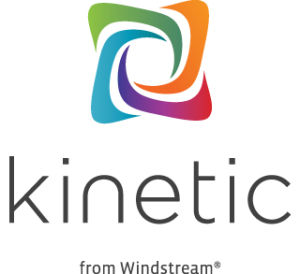“Since launch, we have consistently met our daily target numbers for installations and anticipate the number of residents interested in signing up for Kinetic to continue to grow,” Brooks said in an emailed statement. “We are very pleased with how Kinetic has been received in Lincoln.”
 If Windstream was hoping to make a splash with its new Kinetic IPTV service, Time Warner Cable certainly isn’t reaching for a towel.
If Windstream was hoping to make a splash with its new Kinetic IPTV service, Time Warner Cable certainly isn’t reaching for a towel.
Kinetic debuted in April in Lincoln, Neb., the first community to get Windstream’s fiber to the neighborhood TV service. Three months after being introduced, it’s available in about half of the city. But it is not proving much of a threat to incumbent Time Warner Cable because Windstream set rates roughly the same or higher than what the cable company charges.
In fact, a Stop the Cap! reader contemplating a trial run of Kinetic was quickly dissuaded when he learned Windstream charged $10 more than what he already paid Time Warner Cable.
“Windstream either does not understand Time Warner’s pricing or is artificially trying to limit demand for the moment,” our reader tells us. “I have to believe it is one or the other because the alternative is they don’t know what they are doing and are creating an experiment built to fail. When I told Time Warner I was toying with the idea of trying Kinetic, they cut my bill another $30 a month and Kinetic is now dead to me.”
Time Warner Cable’s customer retention department is well positioned to keep customers because it can sell faster Internet speeds at a lower price than Windstream has offered so far. The phone company obviously has no interest in starting a price war in Lincoln:
- Windstream Kinetic offers packages ranging from $39.99-$129.98/mo;
- Time Warner Cable offers packages ranging from $19.99-$129.99/mo.
The Lincoln Journal Star reports other customers have had similar experiences.
 Ryan Pryor said he inquired about Kinetic, but the price quoted was slightly more than what he now pays for a similar bundle with Time Warner and would have offered a slower Internet speed. So he chose to stick with what he has.
Ryan Pryor said he inquired about Kinetic, but the price quoted was slightly more than what he now pays for a similar bundle with Time Warner and would have offered a slower Internet speed. So he chose to stick with what he has.
Where Windstream has had some success is attracting current satellite customers. Jason Smith was tired of losing satellite service during storms and since he was already a Windstream DSL customer, upgrading to Kinetic made sense.
“The picture quality has been very impressive,” Smith told the newspaper. “The one thing I noticed was how much better the picture looked than on DirecTV with the same HDMI connection to my TV.”
Smith is also happy with a more capable whole house DVR and the fact Windstream offers wireless set-top boxes.
But Smith also admitted he wasn’t sure if we would stick with the service long-term. A significant disadvantage of Kinetic is its reliance on copper wiring part of the way between Smith’s home and Windstream’s central office. All fiber to the neighborhood projects have bandwidth limitations that would not exist with a straight fiber to the home upgrade. Kinetic’s limits become clear when trying to watch three HD signals at once while being on the Internet. He can’t. Kinetic limits customers to two HD video streams at a time, compared with DirecTV’s five. Broadband speeds slow if other members of the household are also accessing telephone and television services.
With competition like that, Time Warner Cable has done little to strengthen its position, with no immediate plans to upgrade service in the city. All that has changed recently is a channel realignment that groups like-channels together starting at channel 100. Time Warner began that nationwide channel realignment in Syracuse, N.Y., in the spring of 2013. More than two years later, that change is only now reaching Lincoln.
Bryan Brooks, the Windstream vice president of business development, did not offer the newspaper many specifics about how Kinetic was performing, except to say demand has met expectations.


 Subscribe
Subscribe Frontier Communications
Frontier Communications  Charter Communications last week filed its
Charter Communications last week filed its  Time Warner Cable customers in parts of the northeast have noticed their broadband speeds increased slightly over the last several days.
Time Warner Cable customers in parts of the northeast have noticed their broadband speeds increased slightly over the last several days.

